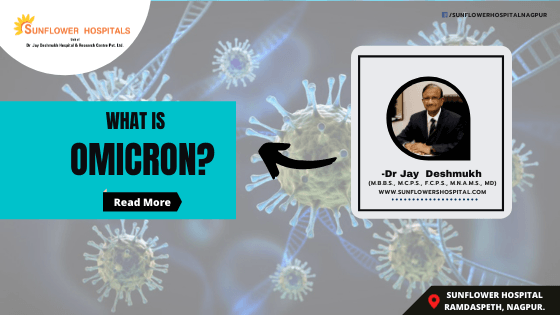This is a virus. It is a variant of SARS-CoV-2, the virus that caused the COVID-19 infection. On 16 November 2021. The World Health Organization called it a variant of concern. The variant has many mutations, several of which are novel and several affect the spike protein. These spike proteins are targeted by most vaccines.
Why is this variant of the virus a matter of concern?
There are certainly many concerns about transmissibility, whether the vaccine will act against the virus and whether Omicron will evade the immune system of our body and cause infection. The variant, therefore, has been named as the variant of concern and various travel restrictions have been introduced by various countries including India in an attempt to slow down its spread.
Why the name Omicron?
The World Health Organization ( WHO) designated the variant as a variant of concern and named it Omicron, the fifteenth letter in the Greek alphabet. Due to a lack of familiarity with the Greek alphabet, many mistakenly call it Omicron.
What are the characteristic symptoms and signs of Omicron?
Some individuals with this virus infection may not have any symptoms. Many individuals in Africa have just reported tiredness and malaise. No cough or change in smell was reported. However, preliminary data suggest an increase in hospitalization rates in Africa.
How many cases have been confirmed in India?
There are 2 cases in India. 217 cases have been confirmed in South Africa and some 23 in the United States. 134 in the UK. The incidence depends largely on the sequencing rate. South Africa sequences far more samples than any other country in their continent. This is still only 0.05% of all COVID-19 cases.
Any changes in treatment modalities for Omicron?
The standard treatment and monitoring of patients as with Covid-19 is done. Corticosteroids and ILA receptor blockers are known to be effective for managing patients with severe Covid-19 infection.
What is the effectiveness of the current vaccines against Omicron?
WHO is still working with scientists and manufacturers to see the effectiveness of the currently available vaccines. Vaccines remain extremely important to reduce severe disease and death. This is more so against the common delta variant of the virus.
What is the effectiveness of the current tests to detect the infection?
The commonly used PCR tests continue to detect infection, including due to Omicron. Studies are ongoing to see whether the rapid antigen detection tests would be useful.
Is the disease due to Omicron more serious?
It is still not clear if the disease is more serious than the current Delta virus infection. Initial reports are from younger university students who had mild disease. A better understanding of the Omicron variant will take several weeks or days. All variants of the Covid-19, including the Delta variant, can cause severe dis-ease or death. This is more in the vulnerable population, thus prevention is the key. In the first few days of its circulation, Omicron may be spreading faster than the Delta virus.
What is the recommended action for people at large?
Keep a physical distance of at least 1 meter from others, sera well-fitting mask, open windows to improve ventilation, avoid crowded places, keep hands clean, and get vaccinated when it is their turn.
Can you still get Omicron virus infection even after 2 vaccine shots?
Yes, you can certainly get it, as no vaccine is 100% protective. However, the vaccination will protect you from getting a serious disease. Hospitalization, need for ventilatory support, oxygen requirement and death can be prevented by taking 2 vaccines. New variants of the virus are likely to emerge in the next few years. Till then aggressive vaccination, social distancing, and wearing an N 95 masks seem to be the only solution.

